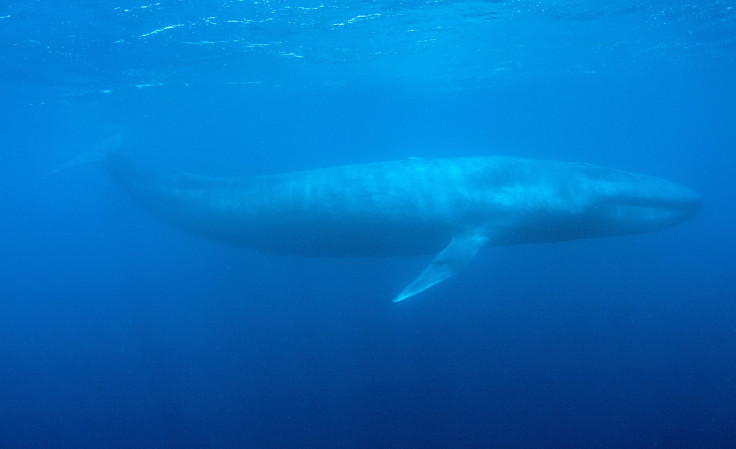Blue Whales Could Temporarily Stop Eating, Alter Diving Behavior When Exposed To Military Sonar

Blue whales can become so disturbed by military sonar that they may change their diving behavior or temporarily stay away from important feeding areas, a new research revealed.
Scientists tagged 17 blue whales in the California Bight with non-invasive suction cups, which recorded acoustic data and high-resolution movements as the whales were exposed to replicated mid-frequency (3.5-4 kHz) sonar sounds, which are significantly less powerful than what the military uses.
"Whales clearly respond in some conditions by modifying diving behavior and temporarily avoiding areas where sounds were produced," Jeremy Goldbogen of Cascadia Research, lead author of the study, said in a statement on Wednesday. "But overall the responses are complex and depend on a number of interacting factors," including whether the whales were feeding deep, shallow, or not at all.
The scientists found that some of the whales, which were engaged in deep feeding, stopped eating and either swam faster or moved away from the area where the sonar had been used. According to scientists, the whales stopped eating for more than an hour after being exposed to the sonar, which could affect the feeding behavior of the marine mammal, which must eat large amounts of krill to survive, due to its body size.
The study, funded by the U.S. Navy Chief of Naval Operations Environmental Readiness Division and the U.S. Office of Naval Research, was published in the journal Proceedings of the Royal Society B, on Wednesday.
Blue whales, the largest beings to ever live on Earth, appear regularly off the southern California coast, an area, which is used as a site for military training and testing exercises involving loud, mid-frequency sonar signals. According to scientists, such exercises have been associated with several unusual strandings of other marine mammal species, such as beaked whales, in the past.
Scientists believe that the study, which provides the first direct measurements of individual responses for any whale species to mid-frequency sonar signals, will help “understand risks to these animals from human sound and inform timely conservation and management decisions.”
Another study by the same researchers, published in the journal, Biology Letters, on Wednesday, showed clear and stronger responses of Cuvier's beaked whales to simulated mid-frequency sonar exposures. The study revealed that beaked whales showed a variety of responses to both real military sonar in the distance and simulated sonar signals in the vicinity.
“Sonar-induced disruption of feeding and displacement from high-quality prey patches could have significant and previously undocumented impacts on baleen whale foraging ecology, individual fitness and population health,” the researchers wrote.
© Copyright IBTimes 2024. All rights reserved.












